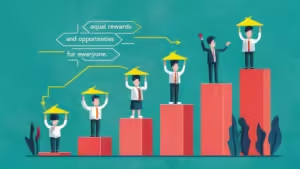Is Career Management: 37:533:317:02 Lower or Upper? This upper-level course is designed for students who want to take their career skills to the next level. It focuses on important topics that help you prepare for real-world challenges in the job market. With advanced lessons on career planning and management, this course gives students the tools they need to succeed.
Understanding whether this course is lower or upper-level is key for students who want to build a strong foundation for their careers. In this blog post, we will explore what makes this course special and how it can help you grow in your professional life. From networking strategies to work-life balance, there’s so much to learn that can help you reach your career goals.
What Makes Is Career Management: 37:533:317:02 Lower or Upper Unique?
Is Career Management: 37:533:317:02 Lower or Upper? This course stands out because it teaches students valuable skills for their future jobs. Designed for upper-level learners, it helps you learn about important topics in career planning and development. This course is perfect for students ready to deepen their knowledge.
Advanced lessons in this course prepare students for the real world. They learn how to tackle challenges and make smart decisions about their careers. By focusing on practical skills, students become more confident in their abilities. This confidence is crucial when they face job interviews or networking events.
Here are some unique aspects of the course:
- In-Depth Curriculum: The lessons are challenging and exciting.
- Real-World Applications: Students practice skills that they will use in their careers.
- Supportive Environment: Teachers help students grow and learn effectively.
Understanding what makes this course unique helps students see its value. It is not just about passing a class; it is about preparing for life after school.
The Importance of Upper-Level Courses in Your Career Journey
Upper-level courses like this one play a significant role in shaping your career. They provide deeper knowledge and specialized skills that are essential for success. Students learn how to think critically and solve problems, which are important in the job market.
By taking upper-level courses, students gain a competitive edge. They are not only learning facts but also applying what they know to real situations. This hands-on approach helps them prepare for the challenges they will face in their careers. Employers look for candidates who can think on their feet and adapt to change.
Here are some key reasons why upper-level courses matter:
- Specialized Knowledge: Students explore advanced topics.
- Skill Development: Critical thinking and problem-solving skills are emphasized.
- Career Readiness: Graduates are better prepared for the job market.
In conclusion, upper-level courses like Is Career Management: 37:533:317:02 are essential for students who want to succeed in their careers. They offer the tools and knowledge needed for professional growth.
Understanding Career Stages: From Entry-Level to Advanced Roles

Understanding the different stages of a career is vital for students. Career paths often start with entry-level jobs, where you gain basic experience. As students progress, they move to more advanced roles that require more skills and knowledge.
In the course, students learn how to plan for these transitions. They discover what it takes to move from one stage to another. This knowledge helps them make informed decisions about their career paths. Knowing what to expect at each stage can reduce stress and confusion.
Key stages in a career include:
- Entry-Level: Gaining foundational experience.
- Mid-Level: Developing specialized skills.
- Advanced Roles: Taking on leadership positions.
By understanding these stages, students can set realistic goals and develop plans to achieve them. The insights gained in this course are invaluable for long-term success.
Essential Skills for Success in Is Career Management: 37:533:317:02 Lower or Upper
Skills are the heart of career success. In this course, students learn essential skills that will help them throughout their careers. The focus is on self-assessment, goal setting, and strategic planning. These skills are important for understanding one’s strengths and weaknesses.
Students are encouraged to think about what they want to achieve. They learn how to set specific goals and create plans to reach them. This process fosters a mindset of continuous improvement. By constantly seeking to learn and grow, students prepare for future challenges.
Some key skills covered in the course are:
- Resume Building: Creating effective resumes that stand out.
- Interview Techniques: Learning how to present oneself confidently.
- Networking Strategies: Building connections in the professional world.
By mastering these skills, students become more marketable. They learn to present themselves well, which is crucial in a competitive job market.
Preparing for the Future Job Market: What You Need to Know
Preparing for the job market is essential for all students. This course helps students understand current trends and challenges they may face. The job market is always changing, so being adaptable is key. Students learn how to keep their skills relevant and stay informed.
By understanding what employers are looking for, students can tailor their job search strategies. This proactive approach allows them to respond quickly to new opportunities. Students gain insights into industry shifts, making them more competitive candidates.
Important aspects of preparing for the job market include:
- Researching Trends: Staying updated on industry changes.
- Skill Development: Continuously improving relevant skills.
- Networking: Building professional relationships to open doors.
Through this course, students learn how to navigate the evolving job landscape. This knowledge equips them to face challenges and seize opportunities as they arise.
The Role of Continuous Learning in Career Advancement

Continuous learning is crucial in today’s fast-paced job market. This course emphasizes the importance of lifelong learning for career growth. Students discover that staying updated on industry trends and skills can set them apart from others. Employers value candidates who are willing to learn and adapt.
Through various assignments and projects, students engage in self-reflection. They evaluate their knowledge and identify areas for improvement. This practice helps them create a personal learning plan that aligns with their career goals. The course encourages students to seek out opportunities for further education and skill development.
Key benefits of continuous learning include:
- Increased Knowledge: Gaining up-to-date information about your field.
- Skill Enhancement: Improving existing skills and learning new ones.
- Career Flexibility: Being prepared for different job roles and industries.
By focusing on continuous learning, students are better equipped to handle changes in their careers. They become more resilient and proactive in their professional lives.
Balancing Work and Life: Tips for a Healthy Career
Balancing work and personal life is essential for overall well-being. In Is Career Management: 37:533:317:02 Lower or Upper, students learn strategies for managing stress and maintaining productivity. The course emphasizes that a happy life leads to a successful career.
Students explore techniques for setting boundaries between work and personal time. This includes prioritizing tasks and taking breaks when needed. By learning to manage their time effectively, students can reduce burnout and enjoy their lives outside of work.
Here are some tips for achieving work-life balance:
- Set Clear Goals: Define what you want to achieve both personally and professionally.
- Prioritize Self-Care: Make time for activities that recharge you, like hobbies or exercise.
- Learn to Say No: Don’t take on more than you can handle, and know your limits.
By practicing these strategies, students can create a fulfilling career without sacrificing their happiness. This holistic approach ensures long-term career satisfaction and success.
How Is Career Management: 37:533:317:02 Lower or Upper Helps You Adapt to Change
Change is a constant in the job market, and this course prepares students to embrace it. Students learn about the importance of flexibility in their careers. Understanding how to adapt to new situations can lead to greater opportunities.
Throughout the course, students are exposed to various scenarios that simulate real-world changes. They learn to assess situations critically and respond effectively. This proactive mindset is essential for navigating unexpected challenges in the workplace.
Important skills for adapting to change include:
- Problem-Solving: Finding creative solutions to new challenges.
- Communication: Sharing ideas clearly with others to facilitate teamwork.
- Open-Mindedness: Being willing to consider different perspectives and approaches.
By developing these skills, students are better equipped to thrive in a changing job environment. They learn that adaptability is a strength that can lead to long-term success.
Success Stories: Students Who Thrived After Taking This Course
Many students have found success after completing Is Career Management: 37:533:317:02. These success stories showcase how the course helped them achieve their career goals. By applying what they learned, students have been able to secure jobs and advance in their fields.
For example, one student used networking skills gained from the course to land an internship. This experience opened doors for a full-time job offer after graduation. Another student reported that the goal-setting techniques learned in the course helped them develop a clear career path, leading to their dream job.
Here are some common themes from success stories:
- Networking Opportunities: Building relationships that lead to job offers.
- Skill Application: Using learned skills in real-world situations.
- Career Clarity: Understanding personal strengths and goals.
These stories highlight the positive impact of the course on students’ lives. They demonstrate how the lessons learned can translate into real-world success.
Conclusion

Taking the course “Is Career Management: 37:533:317:02 Lower or Upper” is a smart choice for students. It helps them learn important skills that will make a difference in their future jobs. Students get to explore different topics and practice what they learn. This prepares them for real-life challenges they might face after school.
By completing this course, students can feel more confident about their career paths. They will understand how to set goals, build connections, and adapt to changes in the job market. This course is a great way to get ready for a successful future!
FAQs
Q: What is “Is Career Management: 37:533:317:02 Lower or Upper”?
A: It is an upper-level course that teaches students important skills for career planning and management.
Q: Who should take this course?
A: This course is designed for juniors and seniors who want to learn more about managing their careers.
Q: What skills will I learn in this course?
A: Students will learn skills like goal setting, resume building, networking, and adapting to change.
Q: How does this course help with job interviews?
A: The course provides tips and techniques for presenting yourself well during job interviews.
Q: Is continuous learning important for my career?
A: Yes! Continuous learning helps you stay updated on skills and trends, making you more valuable to employers.
Q: What if I want to change my career path later?
A: This course teaches you how to adapt and set new goals, so you can change your career path whenever needed.




